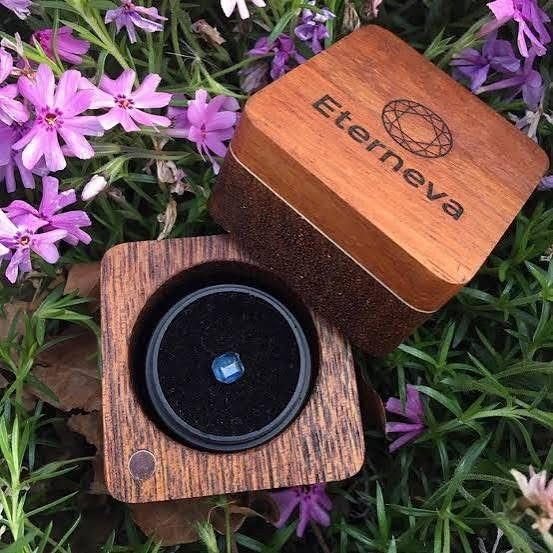Headstone Planning & Customizations: Everything You Need to Know
When we visit a cemetery, one of the first things that usually catches our attention are the headstones. These solemn stone markers, carved with precision and care, serve as a poignant and lasting reminder of those who have passed away. Each headstone tells a unique story, etched into the stone with names, dates, and heartfelt epitaphs that encapsulate the lives and legacies of those who once walked among us. These sacred memorials, found in various shapes and sizes, hold a profound significance in many cultures and traditions around the world, preserving the memories of loved ones and providing a place for reflection and remembrance.
History of Headstones
The earliest known headstones date back to ancient civilizations such as the Egyptians, Greeks, and Romans. These early headstones were typically made of wood or stone, and often depicted symbols such as gods and goddesses that represented the deceased. It was not until the Middle Ages in Europe that headstones began to feature more personal information such as names and dates.
During the Victorian era, elaborate headstone designs became popular, featuring intricate carvings and ornate details. However, during this time, headstones were often reserved for the wealthy and privileged, with many poorer individuals being buried in unmarked graves.
Throughout history, headstones have been adorned with various symbols and designs that hold special meaning. For example, a dove may symbolize peace or the Holy Spirit, while a tree may represent eternal life or family roots. These symbols can be seen in different cultures and religions, each with their own interpretations.
The Evolution of Headstones in Modern Times
Today, headstones come in a wide variety of materials and styles, from traditional granite and marble to more modern options such as bronze and even glass. Headstones can also be personalized with photographs, engravings, and QR codes that provide access to digital memorials or online tributes.
With the rise of cremations, there has also been an increase in unique memorial options such as cremation benches, urns that double as headstones, and even biodegradable headstones made from environmentally friendly materials.
While headstones serve as a physical marker for a loved one’s final resting place, they also hold great emotional and symbolic value. They provide a place where family members and friends can come to pay their respects, remember the memories shared with the deceased, and find solace in their grief. Furthermore, headstones can also serve as a way to preserve history and genealogy, allowing future generations to learn about their ancestors.
Types of Headstones & Customizations
There are a wide range of headstones available, each offering distinct characteristics and a plethora of customization options. Whether you prefer traditional granite headstones, elegant marble designs, or modern bronze markers, you can find a headstone that perfectly reflects the unique personality and memories of your loved one. From intricate engravings and personalized epitaphs to custom shapes and sizes, the possibilities for creating a truly special tribute are endless.
Types of Headstones
Flat marker headstones:
These are typically made from granite or bronze and lie flat on the ground, making them easier to maintain. They are a popular choice for those looking for a traditional and simple design.
Upright headstones:
Also known as tombstones or gravestones, these stand upright and often feature more intricate designs and engravings. They can be made from a variety of materials such as granite, marble, and sandstone.
Slant markers:
Similar to flat markers, these headstones are slanted at an angle and can also be personalized with engravings and designs.
Cremation memorials:
These are designed specifically for those who have been cremated, with options such as urns that double as headstones or smaller plaques that can be placed on a larger memorial.
Headstone Customizations
- Material: As mentioned, headstones can be made from various materials such as granite, marble, bronze, and even glass. Each material offers distinct characteristics in terms of durability, appearance, and customization options.
- Shape & Size: Headstones come in a variety of shapes and sizes, from simple rectangular designs to more elaborate shapes like hearts or angels. The size may also depend on the cemetery’s regulations and the allotted space for each grave.
- Engravings & Designs: Engravings can range from simple names and dates to more detailed images, quotes, or religious symbols. Designs can also be added through etchings, carvings, or even laser engravings.
- Personalization: With modern technology, headstones can now be personalized in unique ways, such as adding QR codes that link to digital memorials or incorporating photographs onto the headstone.
Headstone Symbols and Meaning:
As mentioned earlier, headstones often feature symbols and designs that hold special meaning. These symbols, carefully chosen by loved ones, serve as a lasting tribute to the deceased and can provide comfort and solace to those who visit their final resting place. Some common symbols found on headstones include crosses, which represent faith and spirituality, and doves, which symbolize peace and eternal rest. Other symbols, such as flowers or hearts, can convey sentiments of love, remembrance, and the beauty of life. Each symbol on a headstone tells a unique story, connecting the past with the present and offering a glimpse into the life and legacy of the individual laid to rest.
- Cross: A symbol of faith and Christianity.
- Dove: A symbol of peace, hope, or the Holy Spirit.
- Tree: Representing eternal life or family roots.
- Rose: A symbol of love and beauty, often associated with romantic love or a deep connection to the deceased.
- Angel: A symbol of protection, guidance, and spiritual guardianship.
Cultural and Religious Considerations
Headstones often hold different meanings and symbolism across cultures and religions. In some cultures, headstones may not be used at all, with the focus being on the spiritual connection between the living and the deceased rather than a physical marker. In other cultures, such as in China or Japan, gravesites may feature intricate designs and symbols specific to their beliefs and customs. Additionally, religious symbols and inscriptions may also vary, with some religions allowing only specific images or prayers to be used on headstones.
Cemetery Regulations and Guidelines Regarding Headstones
While headstones are a meaningful way to honor and remember a loved one, it’s important to note that cemeteries often have regulations and guidelines in place regarding their design, size, and placement. These regulations ensure the safety and maintenance of the cemetery grounds while also preserving its aesthetic value. It’s essential to check with the cemetery before making any decisions or purchases regarding a headstone.
Some common regulations include the maximum size and height of a headstone, materials that are allowed, and restrictions on certain symbols or designs. Additionally, some cemeteries may require a permit before installing a headstone. It’s important to carefully review these guidelines to ensure your chosen headstone meets all requirements and can be placed at your desired location.
Budget Considerations: How Much do Headstones Cost?
The cost of a headstone can vary greatly depending on the size, material, and customization options chosen. Simple flat markers may start at a few hundred dollars, while more elaborate upright headstones can cost several thousand dollars. It’s essential to consider your budget when choosing a headstone and to discuss any potential additional costs with the cemetery or memorial company. Some additional expenses may include fees for installation, permits, and maintenance. It’s also important to factor in any personalization or customization costs when creating a budget for a headstone.
Headstone Installation Process
Once you have chosen a headstone and confirmed that it meets all regulations and guidelines, the next step is installing it at the cemetery. Depending on the cemetery’s policies, this process may be done by the cemetery staff or by a professional monument company. The installation typically involves digging a hole, placing the foundation, and securing the headstone in place. It’s important to ensure that the headstone is installed correctly to prevent any damage or safety hazards in the future. Once installed, it’s important to regularly check and maintain the headstone to preserve its beauty and honor your loved one’s memory.
Maintaining Headstones: Care Tips and Recommendations
Headstones are a lasting reminder of our loved ones, and it’s important to maintain them regularly to keep them looking their best. Some care tips and recommendations include:
- Cleaning: Regularly clean the headstone with mild soap and water, avoiding harsh chemicals that can damage the material.
- Avoiding Damage: Refrain from placing heavy objects on the headstone or using it as a resting place for items.
- Seasonal Maintenance: During the winter, remove any snow or ice from the headstone to prevent damage. In the fall, regularly remove leaves and debris that may accumulate on top of the headstone.
- Repairing Damage: If the headstone becomes damaged, consult with a professional monument company for repairs. Attempting to fix it yourself may cause further damage.
- Replacing Flowers: If you choose to leave flowers at the headstone, regularly replace them with fresh ones as they wilt and die.
By following these care tips and recommendations, you can ensure that your loved one’s headstone remains a beautiful tribute for years to come. Overall, headstones serve as a meaningful way to honor and remember our loved ones, and each one holds a unique story and significance. As we continue to grieve and heal, visiting the final resting place of our loved ones can bring comfort and solace knowing their memory will always be preserved through a lasting symbol of love and remembrance.
Preplanning and Pre-Purchasing a Headstone
While it may be difficult to think about, planning ahead for our own passing can bring peace of mind and alleviate potential financial burdens for our loved ones. Preplanning and purchasing a headstone allows us to choose the design, materials, and personalization options that best reflect our legacy and wishes. It also ensures that we have a designated resting place with a lasting tribute. Consider discussing preplanning and purchasing a headstone with your loved ones and a cemetery or memorial company to explore your options.
Working with Tharp Funeral Home to Preplan
At Tharp Funeral Home, we understand the importance of honoring and remembering our loved ones. That’s why we offer preplanning and pre-purchasing services for headstones to ensure that their legacy is preserved in accordance with their wishes. Our team will work with you to select a headstone that reflects your story and provides solace, in addition to helping you have a full plan in place for when the time comes. Contact us today to learn more about our preplanning and pre-purchasing services.
Headstones serve as a tangible reminder of our loved ones who have passed away. They provide a place to pay respects, reflect on memories, and feel connected to those we have lost. In some cultures,







